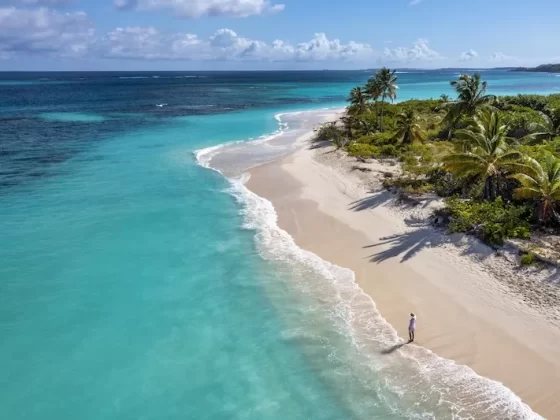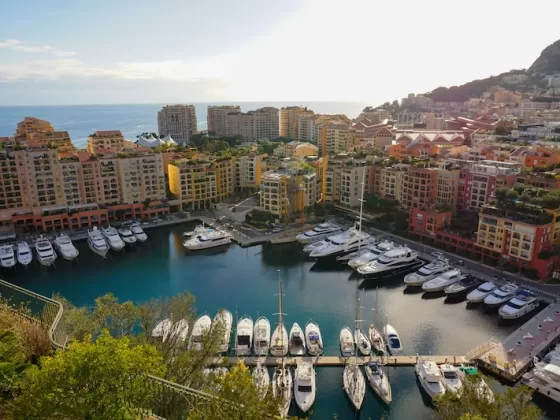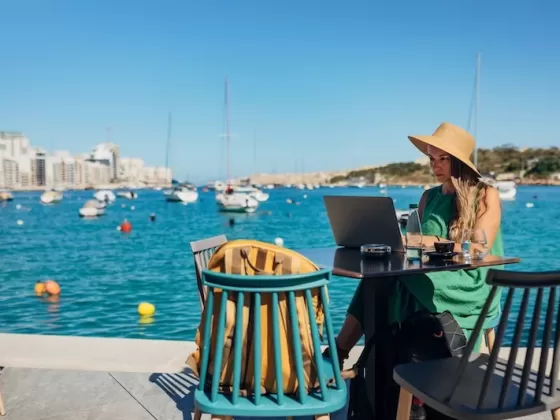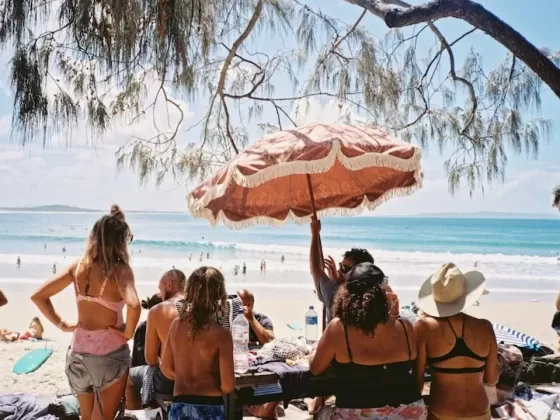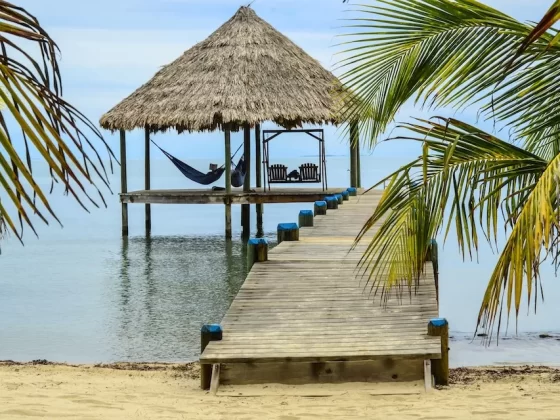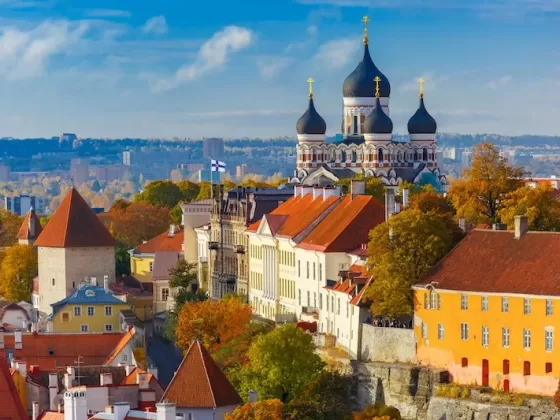If you have important assets to protect, I suggest you consider these options, self-selecting the ones that make sense for you and your family based on your risk profile, income, and overall net worth.*
You Have Less than $500,000 in Assets to Protect
1. Consider opening a bank account based outside the United States. This will give you the ability to open CDs in other currencies (see number 2 below). This will also provide you with “insurance” should something happen to the dollar, or the U.S. banking system. While many foreign banks no longer take U.S. clients, a good number still do. It’s important that you find a good foreign bank match since some banks are designed for doing transactions such as wires or ACH transfers, foreign currency conversion, debit and credit cards, etc. Other banks are more geared toward wealth management and helping you invest your money. Some have very high minimum account deposit requirements while others might accept an account with only a few thousand dollars on deposit. In the event future currency control laws are introduced, you will already have a nest egg outside the United States, from which you can continue to operate.

2. Once you have a foreign bank account, consider placing some of your funds in a variety of important global currencies such as the Euro, Swiss Franc, British Pound, Singapore Dollar or Japanese Yen. Consider holding at least 10% – 20% of your net worth in non-dollar denominated currencies. The Swiss Franc is still considered the safest currency, but I also like the various natural reserve currencies such as the Canadian, New Zealand and Australian dollars. They are undervalued at the moment, so I see a lot of upside potential. In general, they also pay better interest rates and are also popular with investors. The UAE Durham is also becoming the “gold standard” of the Middle East and a good long-term way to hold liquid funds.
3. Precious Metals. To protect against all paper currency devaluation, consider holding at least ten percent of your net worth in gold, silver or other precious metals. Physical metal located in a facility outside the U.S. is best for security and asset protection. Metal certificates (such as Pert Mint) often referred to as “foldable gold” give you the ability to quickly and easily move the certificate from one location to another and redeem them for either the physical metal or the currency of choice at home or abroad.
4. Bitcoin (consider here also the entire larger cryptocurrency complex with many of the same features) is sometimes called “digital gold,” and has a finite number (21 million) which makes it the “hardest” most deflationary currency in the world. Even the supply of gold increases by 1-1/2 to 2 percent per year. Bitcoin has a built-in process which allows micro increases in the Bitcoin supply, but only until the maximum supply of 21 million is realized in the latter part of this century. It is, of course, much more volatile than gold, but like gold, is something you should consider acquiring when you can afford to buy it and simply put it away for the future. Don’t worry about the price day-to-day or your stress levels will shoot to the moon! There are other features for Bitcoin which are extensive and go beyond the scope of this article (such as using it for collateral in a loan) but for more details on acquiring, holding and using Bitcoin as part of your international portfolio, see my article in the January 2025 edition of Escape Artist Magazine.
Read more like this: The Beauty of Bitcoin
5. Foreign Real Estate. Own it as a vehicle for capital appreciation. Foreign real estate also acts as “insurance” to many investors. It’s a physical “safe haven” where they can go for vacation, retirement or any other reason that they may wish to spend time outside of the U.S. Ownership of foreign property often helps in obtaining foreign residency or citizenship. A number of these programs can be accessed for $100,000 to $200,000 and will give you a piece of mind that you are your most important asset and that you deserve to be protected.

You Have More Than $500,000 but Less Than $3 Million in Assets to Protect
Utilize all the techniques above, plus consider these additional ways to protect your wealth:
6. Develop a good relationship with an attorney or a CPA versed in international matters. While items 1–5 are designed to help people with modest means protect themselves with minor costs, if you plan to move beyond those options, you will require good counsel—especially, to stay current with compliance and regulatory matters with which most domestic oriented professionals simply are not familiar.
7. Next, begin considering legal structures specifically designed to protect, preserve and pass on your wealth. An “Asset Protection Trust” (APT), considered to be the Cadillac of all asset protection strategies, has been around under English Common law for over 1,000 years, and is very hard to beat. It legally moves assets from your personal name to a separate legal person (i.e., the trust) which cannot be sued in U.S. courts. This new juridical person is separate and distinct from you, and since you no longer own the assets in the trust, they can never be taken away from you.

The asset protection trust, because it is a separate juridical “person,” is also the foundational element to create not only a new person, but also a new “foreign person” because the “nationality” of the trust is the legal jurisdiction in which it is established. As a foreign (non-U.S.) person, the APT has the ability not only to protect your wealth, but also to increase it by making investments that are “closed” to U.S. investors (due to SEC compliance issues) such as hedge funds, foreign stocks and various other non-SEC registered investment products.
A foreign APT can be costly to set up using an experienced asset protection and tax lawyer. These types of trusts range from $25,000 well into six figures depending on their complexity, tax aspects, number and nationality of the beneficiaries and the length of the trust.
8. International Business Company. This is frequently called an IBC, a corporate structure that really can be used at any financial level, and their primary purpose is to facilitate global (non-U.S.) commercial activity. Corporate entities are also used to own foreign real estate, make other types of foreign investments, and open foreign bank/brokerage accounts. A good offshore company will cost a few thousand dollars a year to maintain a registered office. I frequently like to create an IBC to carry out certain activities my clients want them to perform (such as owning a piece of real estate or to set up a securities trading account for a segregated portfolio.) Then for superior asset protection, we gift the shares of the IBC into the trust, making the trust the legal owner and cutting off any liability that might flow from the activities of the company back to our client.
9. Foreign Brokerage Account. These are generally used by investors who create foreign structures and want to invest in foreign (non-U.S.) stocks/bonds, and other investments that they cannot access from their domestic brokerage accounts. International brokerage accounts attract somewhat higher fees than onshore brokerage accounts. Many still charge annual asset management fees ranging from 0.25-2.00%, depending on the complexity size of their portfolio.

10. Foreign Residency. This is about protecting your most important asset: You! It’s often used by clients who have the ability to generate income abroad or simply those of retirement age looking for a personal “safe haven.” In some circumstances, the foreign residence in conjunction with a foreign company receiving foreign (non-U.S.) income can create the ability for an individual living abroad to file taxes as a non-resident (1040 NR), and receive about $125,000 per person in annual income and housing allowance expense, tax free. Foreign residency is also the first step towards acquiring a second citizenship and a necessary step for those considering legal expatriation (see below), because you cannot legally give up your U.S. Citizenship and thereby become a “stateless person”.
Read more like this: Embracing a Plan B Is Just the Start
You Have More Than $3 Million and Less Than $10 Million in Assets to Protect
This category starts to move away from personal asset protection toward intergenerational asset protection, estate planning and tax minimization. Utilize all the techniques above and also consider:
11. Dynasty Trust. While an asset protection trust is capable of both protecting assets and passing them on to children and grandchildren, a dynasty trust is for those with sufficient wealth to allow the trust principal to be held in reserve for many generations, and the current income (or usually only a part of the trust’s annual income) to be distributed to various beneficiaries. Many clients prefer to see their heirs interface with the trust at various points in life, but not simply to withdraw money. A child might be able to have an outright gift to help offset educational expenses, while a young entrepreneur might receive equity finance in exchange for equity in the business. A young couple might access the trust for a loan to buy their first home on more favorable than commercially viable terms, but the funds still need to be repaid. This introduces concepts of stewardship as well as financial responsibility and independence rather than simply receiving money on a regular basis and thereby becoming dependent rather than independent.

12. Family Foundation. Similar to its common law trust cousin, the foundation is a hybrid vehicle that acts partly like a trust and partly like a corporation. It can be used for asset protection and estate planning, as well as for commercial purposes. A board runs the foundation much like a company’s board of directors, and generally the goals of the foundation stretch beyond the lifetime of both the initial grantor and his/her immediate family. There’s generally a process whereby older members of the family control the foundation’s purse strings with the goal of growing wealth and helping steward it generationally. The beneficiaries tend to be the younger members of the extended family whether for educational support, employment with the foundation, or venture capital investment.
Read more like this: What’s Your Real Plan B?
13. Variable Universal Life Insurance (VUL), sometimes referred to as an “insurance wrapper,” is a flexible life insurance product available offshore that is fully compliant with U.S. tax rules related to insurance. Investments inside a properly created VUL insurance policy can grow tax-deferred, and the death benefit payout is completely income tax-free. Its use and ownership is ideal for a foreign trust or foundation designed to preserve and grow assets over a long period of time. It’s truly one of the last remaining loopholes in the tax code which allows assets to grow massively without taxation both in the current year where the income is earned as well as when the ultimate distribution of wealth takes place at death.
You Have More Than $10 Million in Assets and Up to $50 Million to Protect
Utilize all the techniques above plus consider these last two options as well:
14(A). A foreign family office as part of a “shared” family office platform, (see single family office, 14(B) below) handles tax matters, selects investment advisors, handles foreign real estate matters, insurance issues, residency and citizenship matters, etc., all with a view toward maximizing efficiencies, increasing income and capital appreciation, reducing taxes, and preserving wealth.
The cost of a “shared” family office begins at around 2% of assets under management or a minimum of $100,000 per year. Additionally, there’s also a performance fee similar to a hedge fund whereby the shared family office keeps a portion of the income that it generates for you. A typical fee structure might be 2/20 which would be two percent of assets under management plus a penny for every nickel a family office earns for you. For those looking for one point of responsibility and authority in running their assets like a full-time business, the shared family office is the “easy button,” especially in navigating the complexities and regulatory compliance of operating offshore.
You Have More than $50 Million in Assets
The world is your oyster financially. Select any or all of the above strategies. But in addition, you might also consider:
14(C). Establish a single family office. A personal family office is akin to turning your family wealth into its own business. You’ll need to bring in lawyers, investment advisors, accountants and CPA’s just to name the major services you’ll need. Other family offices employ household staff, travel agents, medical personnel and even psychiatrists. It will cost anywhere from $1.5-3 million to build a world class family office. But the cost is worth it for those who have the means and desire to really focus full time personalized effort on their wealth and its succession.
15. Expatriation is the ultimate asset protection, estate planning and tax minimization vehicle for only the very fewest and wealthiest willing to renounce their citizenship. United States legislation has made it more difficult but not impossible to expatriate for tax purposes. Only about 8-10,000 U.S. persons expatriate in any given year for any reason including tax-related reasons. If you are really fed up with the U.S. tax system, there really is a way to legally escape it, but to do so requires planning, execution and a willingness to give up your passport and U.S. citizenship.
————————
For more information on any of these asset protection strategies or to arrange a personal consultation with Mr. Nagel, please contact us at info@nagellaw.com or by telephone at 412-749-0500 to schedule an appointment.
*This paper, while believed to be accurate, should not be utilized as legal or financial advice that may be obtained only from licensed professionals.
Stay ahead with the Latest News and Trends. Subscribe now for in-depth analysis and real-time updates!


